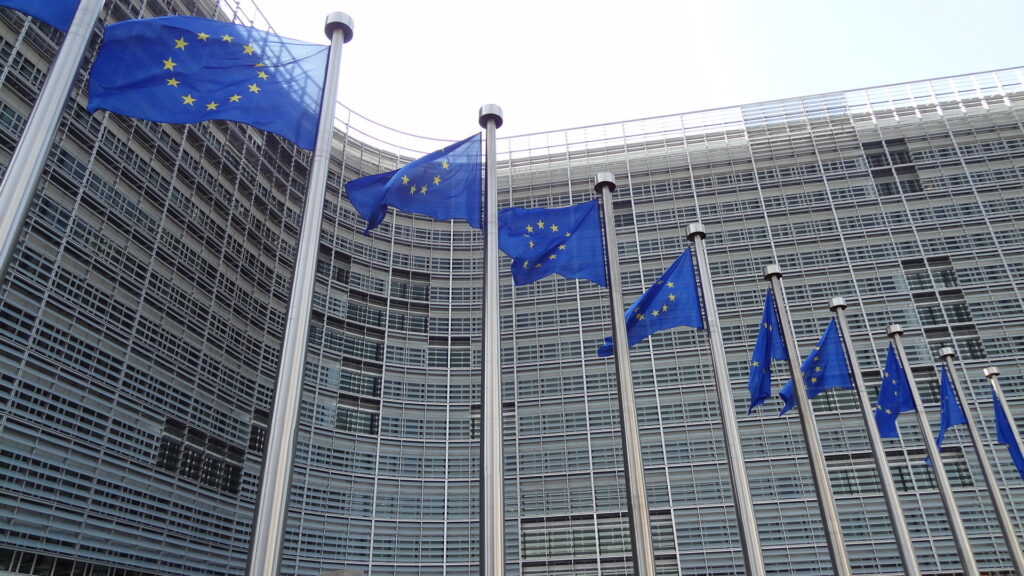Have you noticed that whenever federalists in Europe are feeling a little down and weary, they reach for the soother and the comfort blanket, snuggle up and drift off in a fantasy dream? Instead of accepting the EU for what it is and instead of taking pride in it for what the EU is, they prefer to fantasise about what it might become.
Their current reverie is about a European army. As an antidote to Brexit, the federalist chattering class began to prioritise “security” at their conferences and began to speak of the need for an EU army. Mark my words, they will also soon begin talking about a European FBI as a necessary replacement for the sedentary talk-shop commonly known as Europol.
Quite what a European army would do better than NATO does is never made clear. Deploying soldiers from Italy, Spain, France and Germany (all NATO countries) under a single EU command structure somewhere in Eastern Europe seems a bit daft. And as deterrents go, who would be frightened by it if they weren’t frightened by NATO?
It seems there is no limit to the silliness of federalist rhetoric. And so we have gullible European correspondents scribbling superficial and vacuous pieces to fill their quota of column inches safe in the knowledge that they will be able to re-cycle the piece in a year or two or else write a “Whatever Happened to the EU Army?” piece in due course.
If there were any merit in the idea, it would have happened long ago under the rubric of “enhanced cooperation”. But strangely, apart from a few low-meaning gestures, nothing has happened to suggest that a EU army is practicable, still less on the way.
The EU is not a state. It does not have a sovereign government. It cannot go to war. It cannot be at war. It has no democratic authority to control an army. So why on earth think of having one?
The perversity of the federalist mind-set is that it sees the establishment of the EU army as means of establishing the “need” for a EU government! At the time of the EU’s monetary crisis, Dr Brendan Simms wrote in 2013:
“History suggests that the current crisis requires the immediate creation of an Anglo-American style fiscal and military union of the Euro zone – a ‘democratic union’. This would involve the creation of a European Parliament with legislative powers; and one-off federalising of all state debt through the issue of Union bonds to be backed by the entire tax revenue of the common currency zone (with a debt ceiling from member states thereafter); the supervised dissolution of insolvent private sector financial institutions; and a single European army, with a monopoly on external force projection.”
This federalist predisposition to regard every shock as an imperative for armed integration has yet again become manifest in the wake of the Brexit vote. Ironically, it was arguably one of the causal factors lying behind the Brexit vote.
The federalist Spinelli Group of which I wrote here recently advocated in 2013 that the EU should by a constitutional convention adopt a Fundamental Law involving a sovereign EU state and that the new state should be agreed “in good time for David Cameron’s referendum in 2017” (sic).
One of the founders of the Spinelli Group, Guy Verhofstadt, has written:
“The world will be organised from now on around poles which can be described as empires, with all the precautions that word implies: the United States, China or even India, these are empires, not nation states.”
He added:
“Europe must become an ‘empire’ in the good sense of the word, that is a continental pole able to include, on a voluntary basis, different nations, ethnic groups, cultures or religions….”
and he concluded
“it is false to say that it is necessary to create a functional democracy first for European federation to emerge from it.”
His alarming implication was that if only we establish a fully-fledged federal European state, democracy will somehow follow in its footsteps. That blithely wishes away the other, and more likely, possibility – that his trail-blazing federal benign “empire” or super-state might never become a functioning, accountable democracy based on any self-aware “demos” – but might become something far, far less accountable or benign.
Happily Ireland has not merely secured an opt-out of any EU Common Defence but we inserted a term in our constitution prohibiting the participation of Ireland in such a project. So we will not be part of an EU army.
But that is of little significance if the rest of the EU creates such an army with Simms’s “monopoly on external force projection”.
There is simply no logical connection between Brexit and the creation of an EU army. And Irish people and their political representatives should, I think, call out this silly federalist “comfort blanket and soother” pillow talk for what it is – reactive nonsense.
The real post-Brexit future of Europe is more challenging, more pressing and more demanding of our attention than fantasies the stuff of nightmares. In the midst of all our current political travails and governmental weaknesses, we Irish badly need men and women at the helm who understand statecraft.
Now, there’s a dream!

